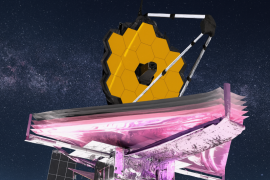Juan Francisco was detained at a border port in South Texas and deported to Mexico after his cell phone was searched. Now he is asking whether or not it is legal to inspect his mobile device and whether he has a chance to return to the US legally.
The incident occurred in early January, shortly before a new asylum program called humanitarian reintegration took effect, allowing some immigrants from Cuba, Haiti, Nicaragua and Venezuela to enter with sponsorship approved by the Department of Homeland Security (DHS).
The Mexican immigrant had a B1/B2 tourist visa in his passport, which allows multiple entries and stays in the country for a period of time that varies between 15 days and three months as authorized by an Immigration and Customs Enforcement (CBP) agent.
But when Juan Francisco finally arrived at the border, a CBP agent asked for his cell phone to verify it. In the news, one directed the agent to deny him entry, revoke his visa, and quickly deport him to Mexico with a penalty of five years barring re-entry into the United States.
“There was a recent photo shoot with co-workers at a fast food restaurant in Texas,” says Juan Francisco.
Working without authorization from the Office of Citizenship and Immigration Services (USCIS) “is a serious crime punishable by detention at the port of entry, as in this case,” explains immigration attorney Jose Guerrero. There they revoke his visa for violating previous entry regulations, and he cannot re-enter for five years.
Can CBP Agents Search Cell Phones?
Book ‘Immigration, New Rules. A Univision guide explains that CBP agents can search your phone and any other electronic device, such as your computer, when you enter the United States.
After January 25, 2017, when then-President Donald Trump signed several executive orders framing his ‘zero tolerance’ immigration policy, focused on curbing undocumented immigration, doubts regarding the issue arose.
The measures included reviewing certain mobile devices and allowing people in at border ports, restrictions that affect foreigners but also legal residents and U.S. citizens.
The book explains that the move is neither new nor instituted by Trump. It dates back to August 15, 1972 and is based on Section 162.6 of the Federal Code of Electronics Regulation. It was updated on August 17, 2016 during the Barack Obama administration.
Section 162.6, under the heading ‘Search of Persons, Baggage, and Cargo’, states that “all persons, baggage, and cargo passing through United States Customs from places outside the United States shall be subject to inspection and search by Customs agents.” It also adds that “Directors of Ports (of Entry) and special agents in charge are authorized to inspect, examine and search persons, baggage or merchandise, including US citizens.”
On March 16, 2017, CBP noted that exceptions are made only for those with diplomatic status.
As such, Juan Francisco had no choice but to unlock his phone and hand it over.
A case of deportation of a student who checked her cell phone
In August 2019, Univision Noticias reported that a Harvard University freshman was deported from a Boston, Massachusetts airport after CBP agents searched his social media.
Ismail b. Ajjawi, a 17-year-old student of Palestinian origin, has come from Lebanon to study at a prestigious university. The Crimson Harvard site then said federal officials denied him entry after they questioned him about his friends’ social media posts.
According to the report, the student was held at Logan International Airport facilities in Boston for about eight hours.
During the interrogation, the boy said he was questioned about his religious practices. About five hours after the interrogation and travel history check began, an immigration officer “called me into the room and started yelling at me,” the release added. He said he saw people posting anti-American political views on my friends list,” said the Harvard Crimson.
The young student said, “I told him that I had nothing to do with those posts, that I did not like them, that I did not care or comment, and that he should not be responsible for what other people post. “I don’t have a single post on my timeline that discusses politics,” he added in the statement.
Ajjawi’s student visa has been revoked and he will be deported, the university newspaper said. In an email to the Crimson Harvard at the time, a CBP spokesperson said, “Applicants (foreign nationals upon entry) must demonstrate that they are admissible to the United States beyond all grounds of inadmissibility, including health-related, criminal, security, public charge, labor certification, illegal entry and immigration requirements, false basic requirements, false documentation.”
“This individual was deemed inadmissible to the United States based on information discovered during the CBP investigation,” the spokeswoman said on her cellphone.
Ten days after the deportation, the student was approved to return and return to classes after a reevaluation of his case at the request of Harvard officials and under a scholarship program that guaranteed a visa in the United States.
“Constitutional Reasons” to Search Your Cell Phone
In February 2021, a panel of judges of the 1st Circuit Court of Appeals ruled that basic and “enhanced” searches, including the review and copying of data without a warrant, are subject to “permissible constitutional grounds” within the United States.
The ruling resolved doubts about whether federal border agents could fully review electronic devices.
“Warrantless and suspicionless searches of electronic devices give border agents unfettered access to vast amounts of personal information about our lives,” Esha Bhandari, deputy director of the American Civil Liberties Union’s speech, privacy and technology program, said after the ruling.
From a case filed on behalf of NASA scientist Sid Bhikkannavar, he was detained and pressured to open a secure phone provided to him by the government.




